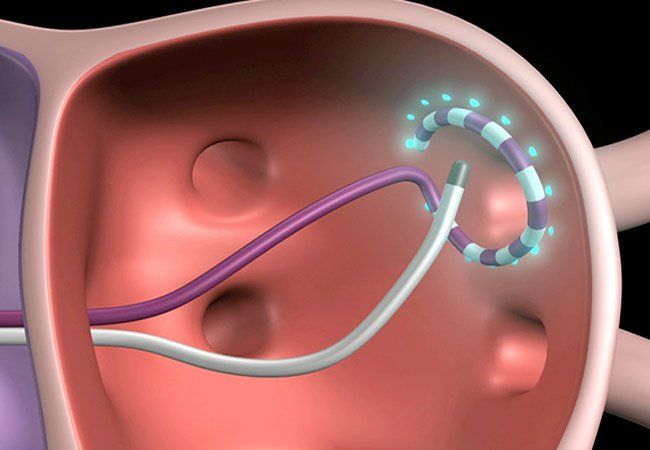Hybrid Afib Ablation
in Daytona Beach, FL
Groundbreaking Hybrid Procedure for Atrial Fibrillation.
Advent Hospital Daytona Beach Medical Center is one of only a few in the nation to offer hybrid ablation (sometimes called the convergent procedure) for atrial fibrillation (AFib).
No one plans on having heart problems, but if you do you need to find a doctor you can trust. At Complete Cardiology Care we staff Cardiologists and Electrophysiologists that treat afib patients with hybrid ablations in Daytona Beach, Ormond Beach, Palm Coast, Deltona, Deland, and the surrounding areas.
Better long term resules
Improved quality of life after procedure
Higher success of eliminating Afib

What is a Hybrid Ablation?
Hybrid surgical-catheter ablation offers a new treatment option for patients with hard-to-treat atrial fibrillation. Performed by a team of cardiac surgeons and electrophysiologists, the procedure combines catheter ablation with thoracoscopic surgery, a minimally invasive chest surgery.
By treating tissue both inside and outside the heart, hybrid ablation more effectively blocks the abnormal electrical signals causing the arrhythmia to provide a more permanent treatment for persistent AFib.
In the surgical procedure, our surgeons:
- Make a few small incisions in your chest to insert the thoracoscope and surgical instruments
- Access the outside of the heart
- Perform radiofrequency ablation to neutralize arrhythmia-causing areas of tissue on the outside of the atrial wall
-
In the catheter procedure, our electrophysiologists:
- Insert catheters through a blood vessel in your groin, arm, or neck
- Guide the catheters through your blood vessels into your heart
- Use radiofrequency ablation or cryoablation (extreme cold) to neutralize tissue on the inside of the atrial wall to achieve “full-thickness” ablation
Knock out your AFib once and for all
If you are curious how we can help you with atrial fibrillation, please reach out to us. We are currently accepting new patients. Complete Cardiology Care staffs Cardiologists and Electrophysiologist that serve patients in Ormond Beach, Daytona Beach, New Smyrna Beach, Port Orange, Deltona, Deland, and the surround areas.
Our Cardiologists and Electrophysiologist take nearly all insurances. We accept Aetna, AARP Medicare Complete, Blue Cross / Blue Shield, Cigna, Florida Healthcare, Florida Hospital Care Advantage, Freedom Health, Health First Health, Humana PPO - out of network benefits apply, Medicare, Optimum Healthcare, Railroad Medicare, Tricare, United Healthcare, VHN, Wellcare.
We are also a partner with the VA and are proud to serve those who have served our country!
Self Pay Cardiology services are available too! Call and ask for our price list.

